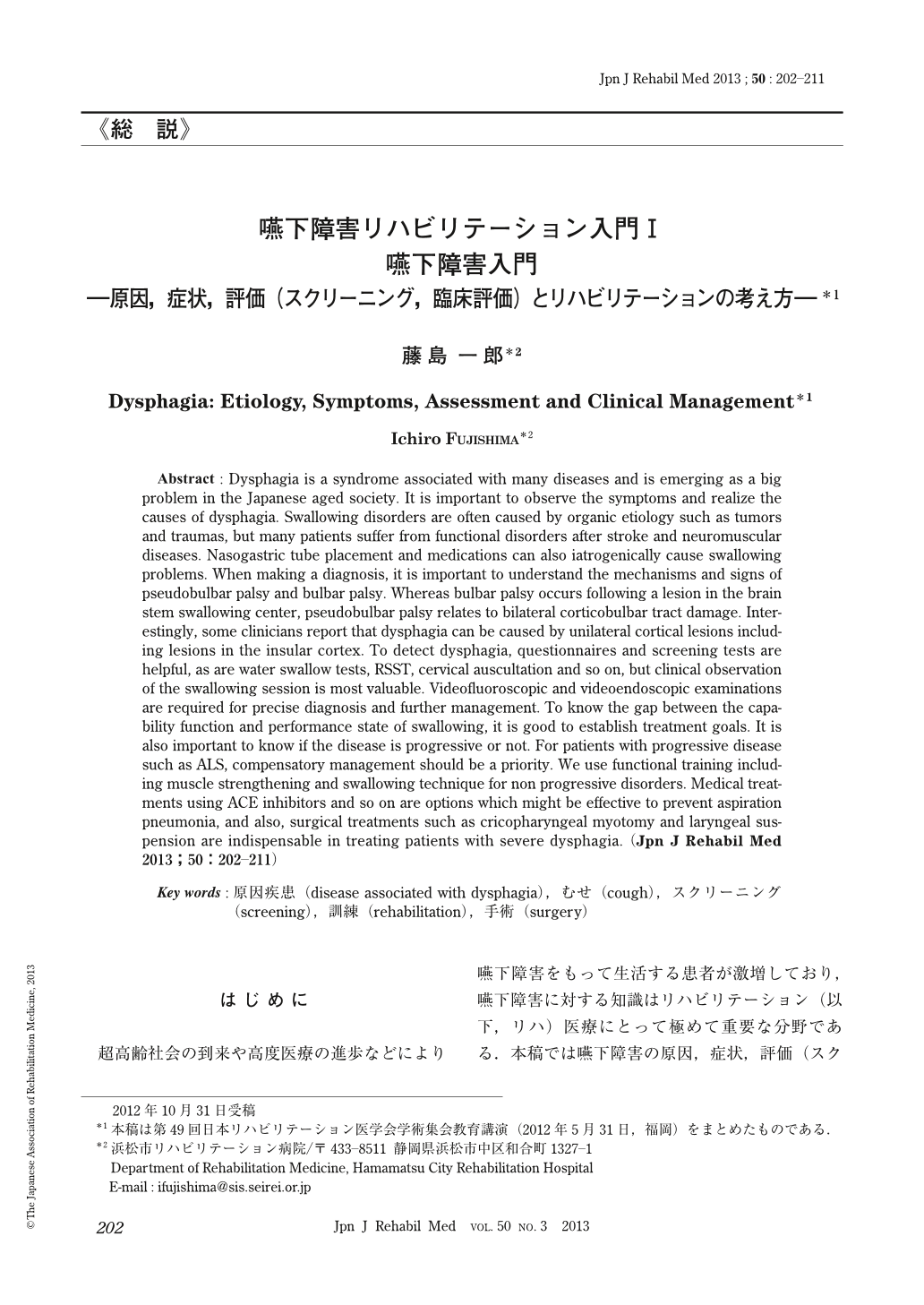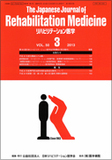Japanese
English
- 販売していません
- Abstract 文献概要
- 1ページ目 Look Inside
- 参考文献 Reference
はじめに
超高齢社会の到来や高度医療の進歩などにより嚥下障害をもって生活する患者が激増しており,嚥下障害に対する知識はリハビリテーション(以下,リハ)医療にとって極めて重要な分野である.本稿では嚥下障害の原因,症状,評価(スクリーニング,臨床評価)とリハの考え方と治療戦略について概説する.
Abstract : Dysphagia is a syndrome associated with many diseases and is emerging as a big problem in the Japanese aged society. It is important to observe the symptoms and realize the causes of dysphagia. Swallowing disorders are often caused by organic etiology such as tumors and traumas, but many patients suffer from functional disorders after stroke and neuromuscular diseases. Nasogastric tube placement and medications can also iatrogenically cause swallowing problems. When making a diagnosis, it is important to understand the mechanisms and signs of pseudobulbar palsy and bulbar palsy. Whereas bulbar palsy occurs following a lesion in the brain stem swallowing center, pseudobulbar palsy relates to bilateral corticobulbar tract damage. Interestingly, some clinicians report that dysphagia can be caused by unilateral cortical lesions including lesions in the insular cortex. To detect dysphagia, questionnaires and screening tests are helpful, as are water swallow tests, RSST, cervical auscultation and so on, but clinical observation of the swallowing session is most valuable. Videofluoroscopic and videoendoscopic examinations are required for precise diagnosis and further management. To know the gap between the capability function and performance state of swallowing, it is good to establish treatment goals. It is also important to know if the disease is progressive or not. For patients with progressive disease such as ALS, compensatory management should be a priority. We use functional training including muscle strengthening and swallowing technique for non progressive disorders. Medical treatments using ACE inhibitors and so on are options which might be effective to prevent aspiration pneumonia, and also, surgical treatments such as cricopharyngeal myotomy and laryngeal suspension are indispensable in treating patients with severe dysphagia.

Copyright © 2013, The Japanese Association of Rehabilitation Medicine. All rights reserved.


